Explore Medical Foundations
Dive deep into physiology and biochemistry for a comprehensive understanding of health and disease.
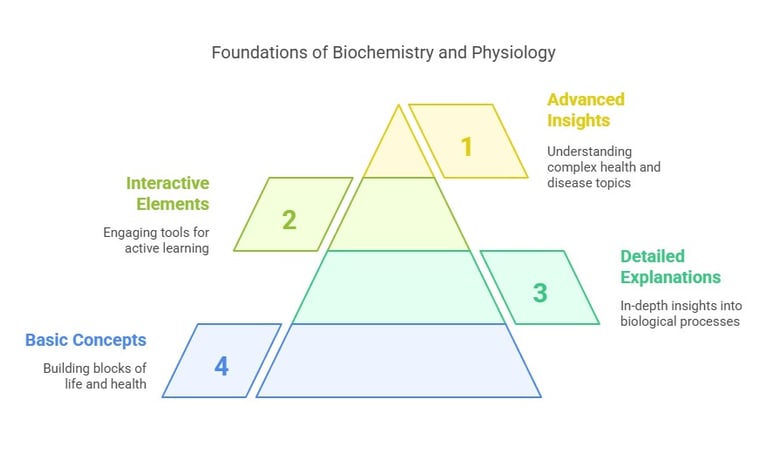

Overview of the Foundational Concepts Page
Welcome to the Foundational Concepts section—a cornerstone of your journey through the intricate and fascinating world of medical biochemistry and human physiology.
This page serves as the gateway to understanding the building blocks of life, meticulously organized to ensure clarity and depth. Designed for medical and dental students seeking a solid grasp of the basics, the content here goes beyond rote memorization, offering you a comprehensive dive into the science that underpins every aspect of health, disease, and clinical practice.
Understanding Life's Building Blocks
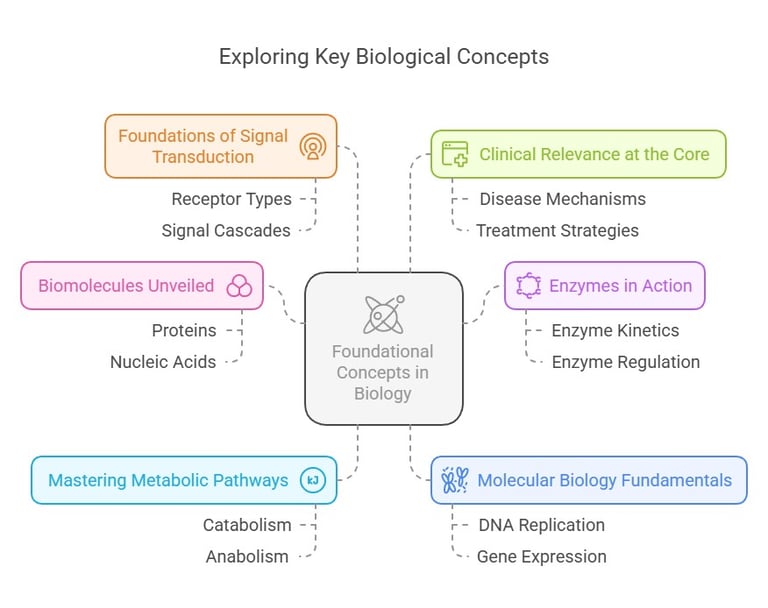

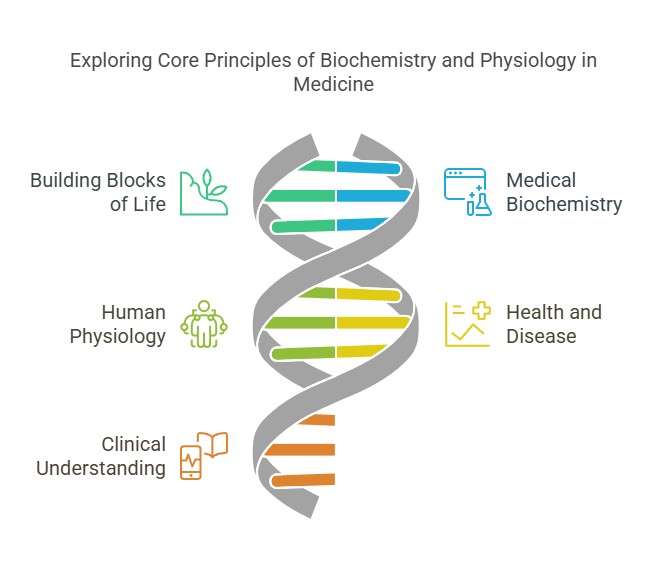

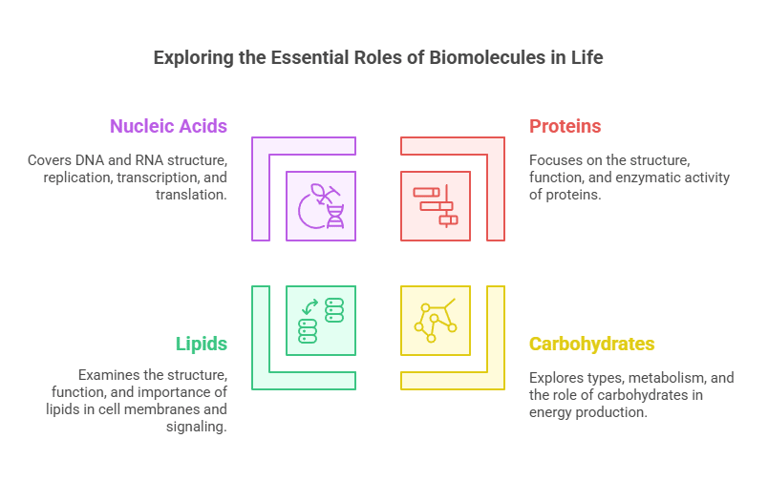

1. Biomolecules
Proteins: Structure, function, and enzymatic activity.
Carbohydrates: Types, metabolism, and role in energy production.
Lipids: Structure, function, and importance in cell membranes and signaling.
Nucleic Acids: DNA and RNA structure, replication, transcription, and translation.
Here’s what awaits you in this section:
Biomolecules Unveiled
Enzymes in Action
Mastering Metabolic Pathways
Molecular Biology Fundamentals
Foundations of Signal Transduction
Clinical Relevance at the Core
Why Start Here?
The Foundational Concepts page is more than a starting point—it’s your anchor for understanding higher-level concepts and advanced insights. With detailed explanations, interactive elements, and illustrative diagrams, this section is crafted to transform complexity into clarity, making learning both efficient and enjoyable.
Step into this foundational realm and set the stage for mastering the art and science of human biochemistry and physiology.
2. Enzymes
Mechanisms of Action: Catalysis and specificity.
Kinetics: Michaelis-Menten equation and enzyme regulation.
Inhibition: Competitive, non-competitive, and allosteric inhibition.
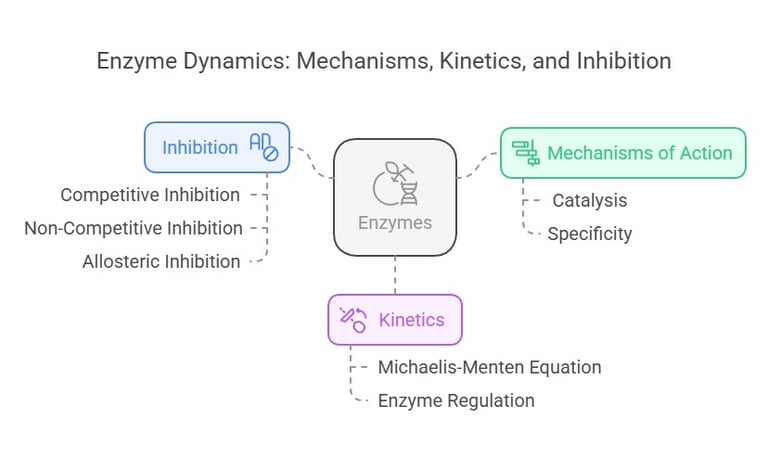

3. Metabolic Pathways
Glycolysis: Energy production and regulation.
Other carbohydrate metabolisms
Citric Acid Cycle: Central role in metabolism.
Oxidative Phosphorylation: ATP synthesis and electron transport chain.
Lipid Metabolism: Beta-oxidation and synthesis.
Amino Acid Metabolism: Transamination and deamination.
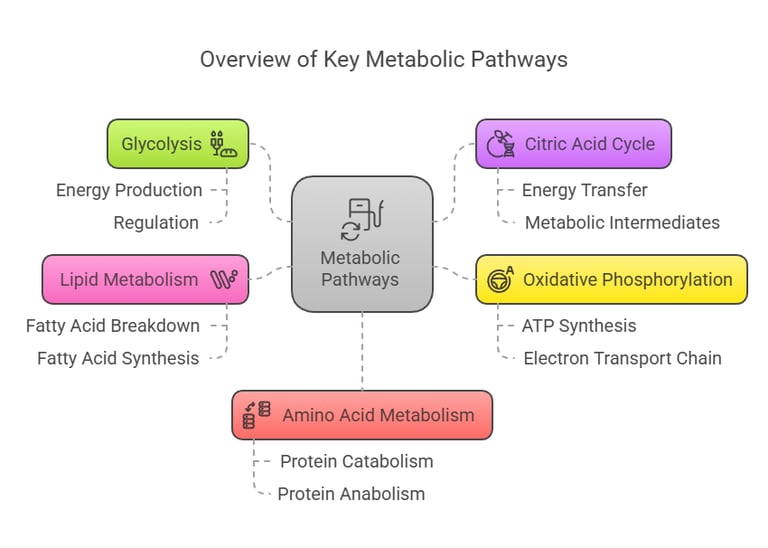

4. Molecular Biology
Gene Expression: Regulation of transcription and translation.
Epigenetics: DNA methylation and histone modification.
Mutations: Types and their biochemical consequences.
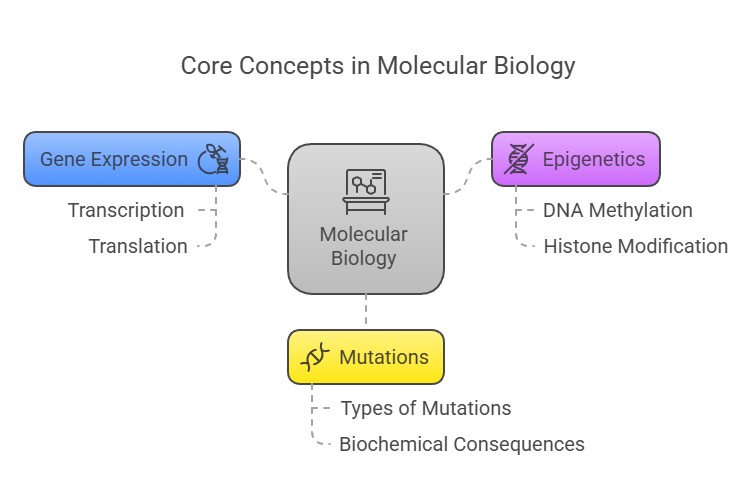

5. Signal Transduction
Hormones: Mechanisms of action and biochemical pathways.
Receptors: Types (e.g., G-protein coupled receptors) and signaling cascades.
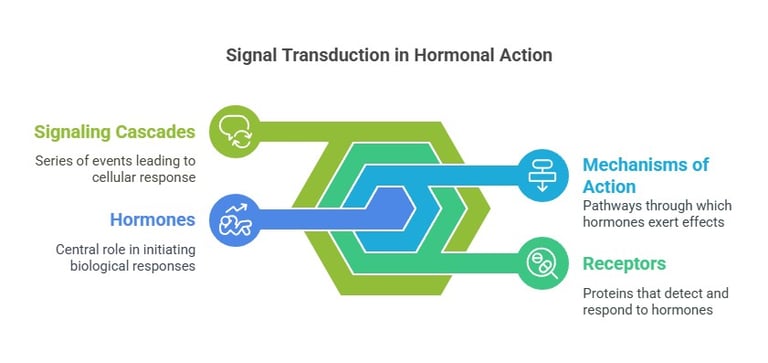

6. Clinical Biochemistry
Biochemical Markers: Diagnostic tools for diseases.
Pathophysiology: Biochemical basis of disorders like diabetes and hyperlipidemia.
Pharmacology: Drug interactions with biochemical pathways.
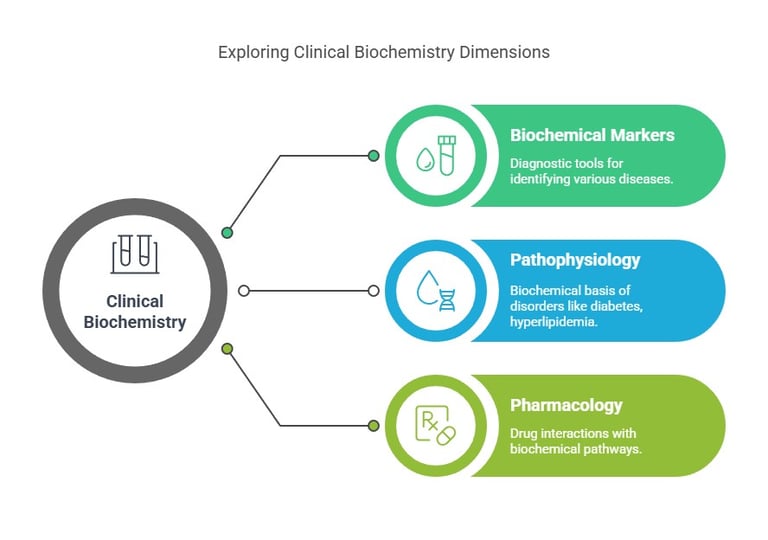

7. Techniques in Biochemistry
Spectroscopy: UV-Vis, NMR, and mass spectrometry.
Chromatography: Separation techniques like HPLC and GC.
Electrophoresis: Protein and nucleic acid analysis.
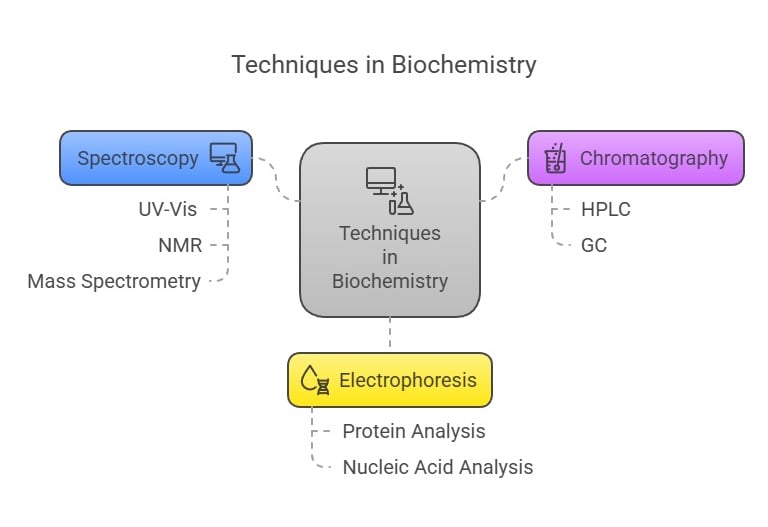

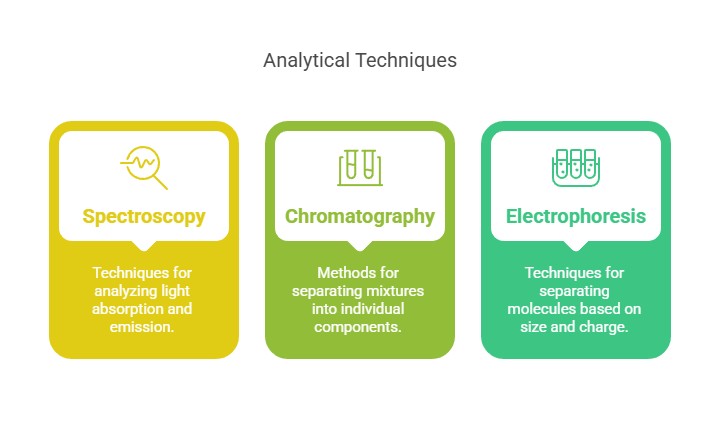

BLOG
Join us to explore medical biochemistry intricacies.
WRITE TO US
© 2024. All rights reserved.
